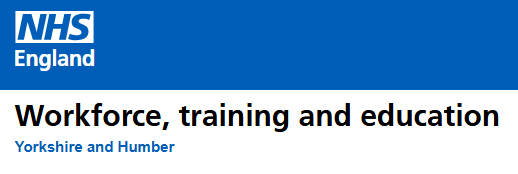We offer subspecialist training and fellowships in diagnostic and interventional neuroradiology, vascular and non vascular interventional radiology, GI / liver, chest / cardiac, radionuclide, breast, MSK, paediatric and oncology imaging at local specialist hospitals.

Neuroradiology course is offered by York Sand Humber Deanery NHS
We offer subspecialist training and fellowships in diagnostic and interventional neuroradiology, vascular and non vascular interventional radiology, GI / liver, chest / cardiac, radionuclide, breast, MSK, paediatric and oncology imaging at local specialist hospitals.
Trainees have consistently achieved excellent examination results, including award of the Royal College of Radiologists’ gold medal. Recent graduates were all successfully appointed to Consultant Radiologist posts on achievement of CCT, a significant number of them taking up posts in hospitals on the rotation.
Trainees also benefit from the Faculty’s extensive international network of colleagues who are able to provide personal introductions and a springboard to fellowships and careers in North America and Australasia.
We have an established Faculty with many senior members at its core. Sheffield consultants are represented on the Royal College of Radiologists’ Education Board, Training and Accreditation Committee, Scientific Committee and act as senior FRCR examiners.
The Faculty includes many former trainees and was commended by the most recent Training and Accreditation Committee for its 'enthusiasm and commitment'
We have the benefit of a Department of Academic Radiology within the clinical department at the Royal Hallamshire Hospital. There is a productive working relationship between the two departments.
Specialty Registrars are given every encouragement and support to achieve publication and there are opportunities to present at national and international meetings.Sheffield successfully applied to host Academic Clinical Fellowships and Lectureships enabling trainees to simultaneously pursue academic and clinical studies.
NHS England exists for one reason only, to support the delivery of excellent healthcare and health improvement to the patients and public of England by ensuring that the workforce of today and tomorrow has the right numbers, skills, values and behaviours, at the right time and in the right place.
The Postgraduate Dean is Dr Jon Cooper. Dr Cooper is supported by Deputy Deans: Ms Fiona Bishop, Mr Jon Hossain and Mr Willy Pillay.
What do we do?
These are just a few of things we do….
Implement the new NHS England Quality Framework
Maintain standards and improve the quality of education
Work in an honest, fair and transparent way
Recognise the role that learners and Postgraduate Doctors in Training (PGDiTs) play within the service and support educational development, research and innovation
Encourage all learners to achieve their potential
Support and develop trainers
Review how multi-professional healthcare teams interact and identify opportunities for different healthcare professions to work more effectively together through education and training
Recognise the central role of the patient, and the learner/patient relationship
Support use of simulation and clinical skills in training
Manage a ‘Future Leaders Programme’
Provide leadership in the field of education and training
Be responsive to the changing needs and values of the NHS
About Us
NHS England exists for one reason only, to support the delivery of excellent healthcare and health improvement to the patients and public of England by ensuring that the workforce of today and tomorrow has the right numbers, skills, values and behaviours, at the right time and in the right place.
The Postgraduate Dean is Dr Jon Cooper. Dr Cooper is supported by Deputy Deans: Ms Fiona Bishop, Mr Jon Hossain and Mr Willy Pillay.
What do we do?
These are just a few of things we do….
Implement the new NHS England Quality Framework
Maintain standards and improve the quality of education
Work in an honest, fair and transparent way
Recognise the role that learners and Postgraduate Doctors in Training (PGDiTs) play within the service and support educational development, research and innovation
Encourage all learners to achieve their potential
Support and develop trainers
Review how multi-professional healthcare teams interact and identify opportunities for different healthcare professions to work more effectively together through education and training
Recognise the central role of the patient, and the learner/patient relationship
Support use of simulation and clinical skills in training
Manage a ‘Future Leaders Programme’
Provide leadership in the field of education and training
Be responsive to the changing needs and values of the NHS
© 2025 coursetakers.com All Rights Reserved. Terms and Conditions of use | Privacy Policy